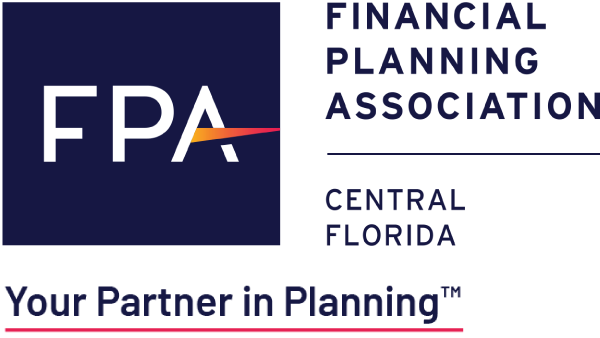
Retirement Readiness: How Prepared Are You Really?
 This isn’t your parents’, or your grandparents,’ retirement. Instead of accepting a pension, a gold watch and a rocking chair at age 65, more people are heading into the next phase of life with a plan to stay active, and perhaps to continue to work, as they eye a retirement that could last through their 60s, 70s, 80s and beyond.
This isn’t your parents’, or your grandparents,’ retirement. Instead of accepting a pension, a gold watch and a rocking chair at age 65, more people are heading into the next phase of life with a plan to stay active, and perhaps to continue to work, as they eye a retirement that could last through their 60s, 70s, 80s and beyond.
Yet as much as the reality of retirement has changed for people over the years, it remains part of the American Dream. And realizing all that dream entails — living the lifestyle you envision, pursuing items on your bucket list without fretting about running out of money — takes preparation both financially and psychologically, according to Jamie Bosse, a Certified Financial Planner™ with KHC Wealth Management in Overland Park, KS.
“More people today are trying to retire to something, not from something,” she says. “To maintain financial independence during retirement, you need to look at the big picture and start planning well in advance.”
Whether retirement is imminent or a still some years away, it’s not too early to assess your readiness, and, based on that assessment, to begin taking steps to position your finances and your mindset for what comes next. “When preparing for retirement, you not only want to ensure that you have enough money to retire with, but also want to determine what you want to do in your ‘second life,’” explains New York City-based Certified Financial Planner™ Michael Cooper.
Are you ready for retirement? Use the following checklists (much of which comes courtesy of Bosse and KHC Wealth Management) to help you assess, then consult a financial professional for guidance and assistance putting all the moving parts into a coherent plan. To find one in your area, visit the Financial Planning Association’s searchable national database of personal finance experts at www.PlannerSearch.org.
IF YOU’RE THINKING ABOUT RETIREMENT…
- Determine the appropriate timing of retirement as it relates to equity awards, bonuses, deferred compensation and vacation time payout from an employer.
- Get a clear picture of insurance coverage. Will you rely on an employer’s retiree health care plan, COBRA, a spouse’s plan or an individual policy? Are you adequately covered with insurance in other areas?
- Develop a plan for addressing the costs and consequences of a long-term illness.
- Fund a health saving account before you retire, if you have access to one. HSAs are a highly tax-favored vehicle for funding healthcare expenses.
- Fully fund (to the maximum amount allowed by tax law, if possible) the employer retirement plan in which you participate in the year you retire.
- Carefully consider pension elections, if you have a pension plan. Timing may be key here, so be sure to review payout options (lump sum or annuity?) and survivorship options.
- What are your wealth transfer and charitable giving/philanthropic goals? Decide to whom you intend to pass wealth, and develop a plan for doing so tax-efficiently (with the help of an estate planning expert).
- Where will you live? Consider factors like cost of living and taxes.
- Start building a retirement cash reserve, one that’s readily accessible to draw from for short-term income needs and to cover unexpected large expenses. Bosse recommends the reserve contain the equivalent of 18-24 months’ worth of expenses.
Prepare your mindset for the transition to retirement, if it involves separating from a job:
-
- How will I replace the social interaction I get from work?
- How will I replace the intellectual challenge?
- How will I structure my days without a work schedule?
Start “sampling” likely retirement activities:
-
- Use vacation time
- Use free time
- Join organizations
IF RETIREMENT IS LOOMING CLOSE…
- What’s your retirement paycheck? Review the income sources you will rely upon during retirement (qualified retirement plan, pension, Social Security benefits, employment, rental property, investment dividends/interest, etc.), how much each will provide, when, and for how long.
- Get a firm handle on your spending. Track your expenses over a period of several months to determine how much cash flow you will need to cover hard expenses for food, housing, transportation, healthcare, etc. (including expenses that occur monthly and annually), and to finance your discretionary spending. Be sure to factor inflation into projected expense calculations.
- Assess upcoming cash needs for relocating, buying a car, etc. Develop a plan for your cash needs over the next three to five years.
- Establish goals: travel, education, hobbies, recreation, etc.
- Need or want to continue working? Develop a vision for how you’ll earn income and how much you’ll work.
- Position your assets. Are they appropriately diversified to mitigate/minimize volatility and tax burden while maintaining growth potential?
- Make an income plan specifying which accounts you’ll draw down for income, when and how much.
- Make strategic decisions about Medicare and Social Security benefits — when to turn them on, how best to manage spousal benefits, etc.
- Envision what the first 6-12 months of retirement look like.
-
- Continue “sampling” retirement activities
- Decompress. You earned it!
- Schedule: How do you expect to spend your days?
- Expect the unexpected. “No matter how good your plans, you have to allow for contingencies, because life happens,” observes Larry Luxenberg, a Certified Financial Planner™ with Lexington Avenue Capital Management in New York City.

